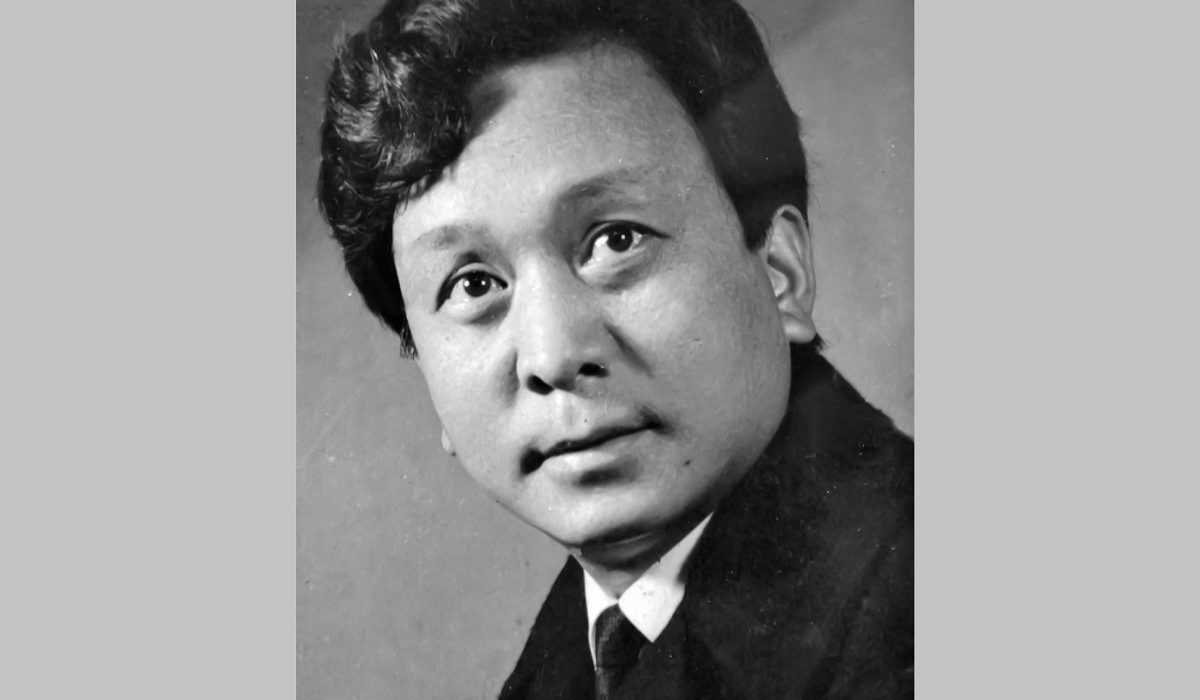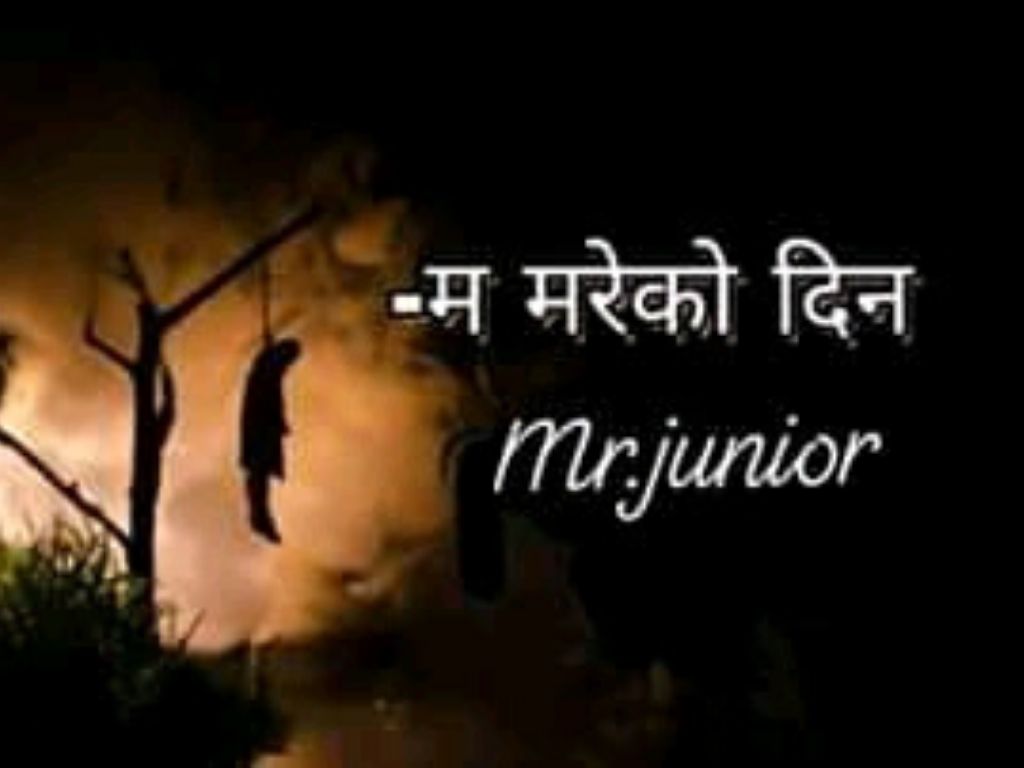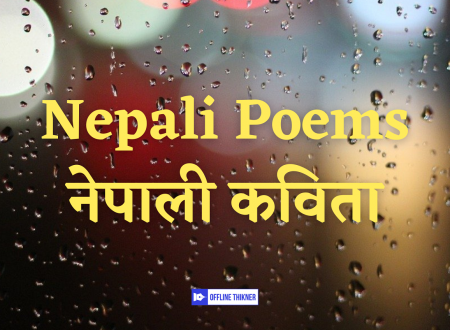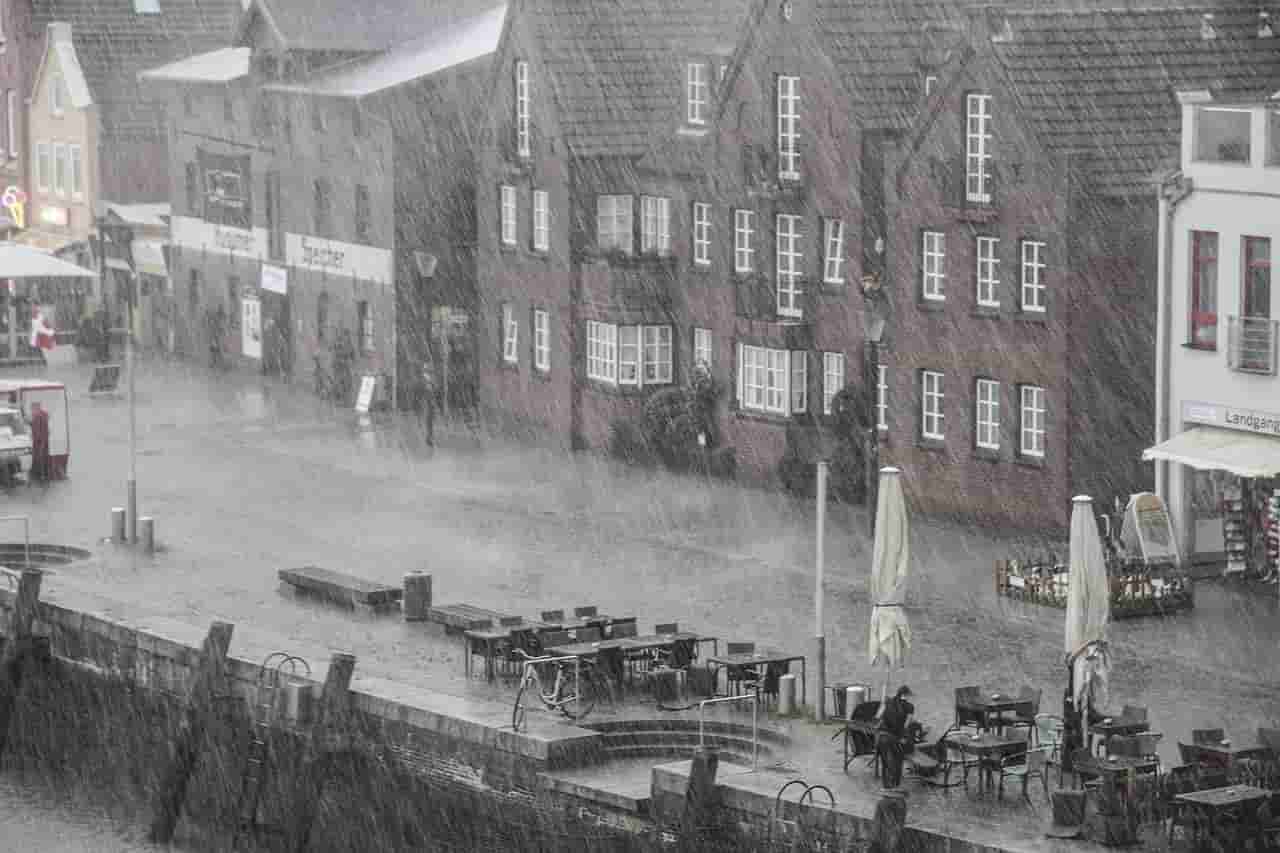भूपी शेरचन – मेरो चोक
साँघुरो गल्लीमा मेरो चोक छ
यहाँ के छैन? सबथोक छ
असङ्ख्य रोग छ,
केवल हर्ष छैन,
यहा त्यसमाथि रोक छ
साँघुरो गल्लीमा मेरो चोक छ
यहाँ के छैन? सबथोक छ
यो मेरो चोकमा
देवताले बनाएका मानिस र
मानिसले बनाएका देवता,
यी दुबैथरीको निवास छ
तर यहाँ यी दुवैथरी उदास छन्
दुवैथरी निरास छन्
मानिस उदास छन्
किनकी तिनलाइ यहाँ
रात रातभरी उपियाँले टोक्छ
दिन दिनभरी रुपियाँले टोक्छ
र देवता उदास छन्
किनकी तिनलाइ यहाँ
न कसैले पुज्छ न कसैले ढोग्छ
त्यसैले यो चोकमा
देवता र मानिसले
एक अर्कालाई धिक्कार्दै
एकसाथ पुर्पुरो ठोक्छन्
साँघुरो गल्लीमा मेरो चोक छ
यहाँ के छैन? सबथोक छ
Early Life
Bhupi Sherchan, one of the highly celebrated and loved poets in Nepal, was born on 25 December 1935 to Hit Man Sherchan and Padma Kumari Sherchan as their 5th son in Thak Khola Mustang District. He was named Bhupendra Man Sherchan at birth by his parents. Bhupi’s mother passed away when he was only 5 years old. Many blamed him for being the cause of her death as astrologers had proclaimed at his birth that he was born under inauspicious stars and would harm his parents. People around him taunted him as “Aama tokuwa”, which loosely translates into “responsible for mother’s death”. This tortured him but also made him feel responsible for this mother’s death as a child. The taunts compounded by the sadness, guilt and grief left an everlasting void in his life and also anger and resentment toward his family.
Bhupi was an intelligent and smart child. At the age of 8 years, he could recite Hindu scriptures Mahabharat and Ramayan, by heart. He was also extremely charming, witty, and eloquent and was known to hold audiences enrapt for a long time.
His father was among the early Nepali merchants of the Rana days to engage in trade with India and Tibet and a pioneering businessman. Although the family was wealthy, they valued discipline, hard work, and a simple life. The children were expected to be obedient and live an austere lifestyle.
Formative Years
He spent his early days in India – first at a school in Ananda Nagar, Gorakhpur, and later at high school and college of Banaras Hindu University in India. In Banaras, he got attracted to communism and adopted Sarbahara as his pen name. His first published work is a play titled Paribartan (which translates to Change). It was published in 1951 when he was just 16 years of age and was inspired by the freedom movement in Nepal against the Rana regime. His second published work is his first anthology of Nepali poems Naya Jhyaure which was published by Janayug Prakashan, Banaras, in 1953. The anthology was driven by his communist ideology. His second anthology and third publication was titled Nirjhar and was published under the name Bhupendra Man Sherchan in 1958. The poems in this anthology follow the traditional metrical form.
Bhupi Sherchan
After Nirjhar, he adopted Bhupi Sherchan as his pen name. In B.S 2027 ( AD 1969) Sajha Prakashan published a collection of his poems and named it after one of the poems included in the anthology – Ghumne Mech Mathi Andho Manchhe (A Blind Man in a Swivel Chair). The poems in this collection reflect the ethos of that era and thereafter. They highlight social injustice, poverty, discrimination, and political hypocrisy. They still resonate with the frustrations, anger, and disillusionment of every common man. The poems included in this collection did not follow metrical structure and were written in free verse. These were written in the most simple Nepali language, which made it relatable and easily comprehensible. His capacity to maintain simplicity in language while conveying the most profound thoughts has remained distinctive and unsurpassed. He was awarded the first Sajha Puraskar in 1969 for Ghumne Mech Mathi Andho Manche.
Ghumne Mech Mathi Andho Manchhe revolutionized Nepali poetry. It remains one of the bestselling collections in Nepal.
Other Details
He was appointed a member of the Royal Nepal Academy for two terms from 1979 to 1989.
He married twice.
His first marriage was to Om Kumari Tulachan with whom he had 6 children – 5 daughters and a son.
In 1969, he married Kanti Rana with whom he had 2 children – a daughter and a son.
He died of complications arising out of lung condition after prolonged illness on 14 May 1989.
Source: https://inepal.org/nepalipoems/8/bhupi-sherchan-mero-chowk/







